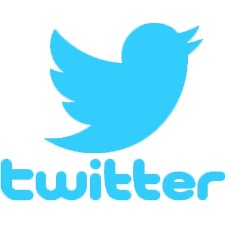Twitter Set to Ban Ads for ICO’s and Token Sales This Week
Date Written: March 27 2018 Written By: George Miller Following in the footsteps of Facebook, who banned ALL cryptocurrency-related ads just last month, Twitter has also decided to take similar precautions in order to protect its users from being scammed via cryptocurrencies. Though their ban will only affect certain elements of the cryptocurrency sphere, the scope of the ban is somewhat limited compared to that of Facebook.
Following in the footsteps of Facebook, who banned ALL cryptocurrency-related ads just last month, Twitter has also decided to take similar precautions in order to protect its users from being scammed via cryptocurrencies. Though their ban will only affect certain elements of the cryptocurrency sphere, the scope of the ban is somewhat limited compared to that of Facebook.
Starting on Tuesday March 27th, Twitter has confirmed that it will be removing all ads pertaining to ICO’s and token sales in addition to crypto exchange and wallet services. The new ban will not apply to ads being run by publicly traded companies that are listed on major stock exchanges and it is not just limited to the United States either. In a statement made today, Twitter said that “…Under this new policy, the advertisement of Initial Coin Offerings (ICOs) and token sales will be prohibited globally.”
If you have a Twitter account and follow any prominent members of the cryptocurrency community, you are probably already well-aware that scams and impostors are running wild at the moment. There have been several instances of fake accounts being created which pretend to be important individuals such as Vitalik Buterin, for example. These fake accounts Tweet or reply to original Tweets saying that if you send some cryptocurrency to their address or provide them with your wallet’s private key, you can earn free cryptocurrency. This has been a problem for some time now, and it seems that new and innovative cryptocurrency scams are popping up every day on Twitter, Facebook and a plethora of other online outlets.
While Twitter may not be able to completely control many elements of crypto-related scams, the upcoming ban could be considered a positive one for Twitter users. Aside from the user-experience viewpoint, at this point in time, a lot of the legal landscape pertaining to ICOs and cryptocurrencies in general is still up in the air in the United States and other countries throughout the world. Twitter may just be waiting for more guidance from national governments, or the ban might remain in place for many years to come.



